
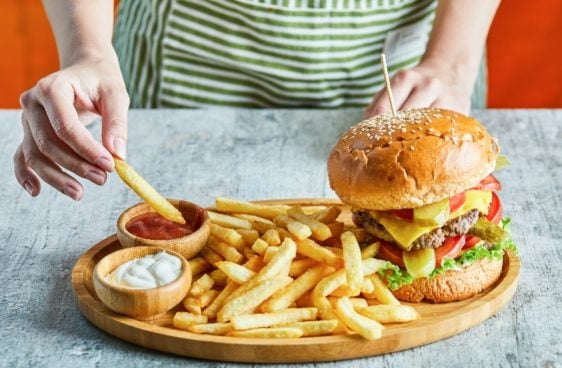
According to the Human Genome Project, the human genome has between 20,000 to 25,000 genes. Also, the science of nutrigenomics is progressing every day.
The biggest problem with the articles that look down DNA diets is that they don’t explain the difference between basing a diet on a single gene and using a complex algorithm which factors in hundreds of genes.
However, single genes can still have a big impact.
For example, one Harvard study found that people with a specific FTO gene variation lost a lot more weight on a higher-protein diet.
These types of studies are vital in helping us overcome the current one-size fits all diets that don’t look at us as individuals.
So the answer is yes, a diet plan based on DNA can certainly work, especially if it looks at a significant range of your genes instead of just a couple.
What a diet plan based on DNA looks like depends on who (or what, in the case of algorithms) created it.
A good DNA diet plan will not only tell you what you should and shouldn’t be eating, but why, and give you actionable advice on how to optimize your diet based on your genes.
Not all types of DNA diets do this.
For instance, if your caffeine sensitivity genes show that overall, you’re moderately sensitive to caffeine, a good DNA diet plan will tell you exactly how much is safe to consume: maybe two to four cups a day.
It will also give you a breakdown of all the genes that the algorithm has analyzed to come to that conclusion. We currently know of five genes that affect how your body deals with caffeine.
Caffeine sensitivity is affected in two basic ways:
First, you may metabolize caffeine more slowly, which increases your sensitivity to its effects.
Second, caffeine may lower your bone density, depending on your genetic variations.
At LifeDNA, we combine these two factors to determine how much caffeine you can safely consume in a day.
A good DNA diet plan will also give you the references to the scientific studies that your advice is based on.

DNA diet testing should enable you to use nutrition to its fullest potential to prevent, manage or improve health issues.
From the results, you need to learn how to optimize your wellness and quality of life. While getting the results you want may take some effort, putting the advice into practice should be easy.
Your results should be crystal-clear, simple, specific and actionable.
Because knowing that you should consume less caffeine, for instance, isn’t giving you the information you need to change your behavior. You also need to know why you need to cut your coffee intake (what could happen if you don’t), and exactly how many lattes you can get away with.
You should also look for reports that present their information in a clear, compelling and attractive way. You’ll be seeing and digesting a lot of complex data: looks count for a lot here.
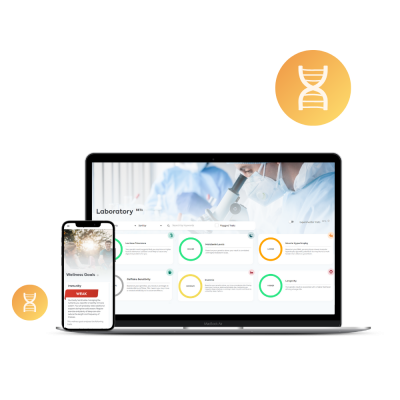
Advantages of LifeDNA
Disadvantages of LifeDNA
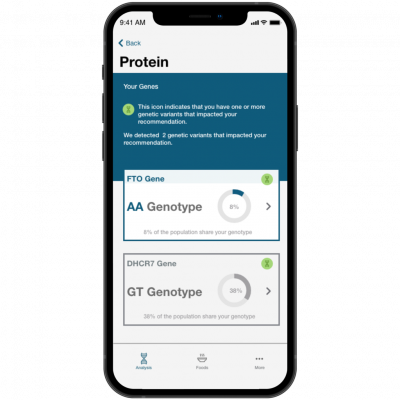
Advantages of Genopalate
Disadvantages of Genopalate
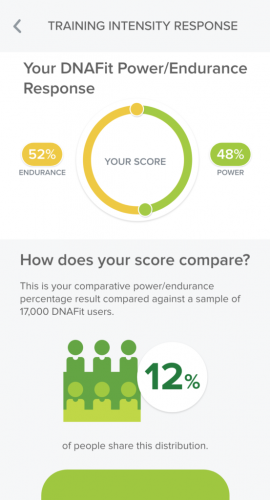
Advantages of DNAfit
Disadvantages of DNAfit
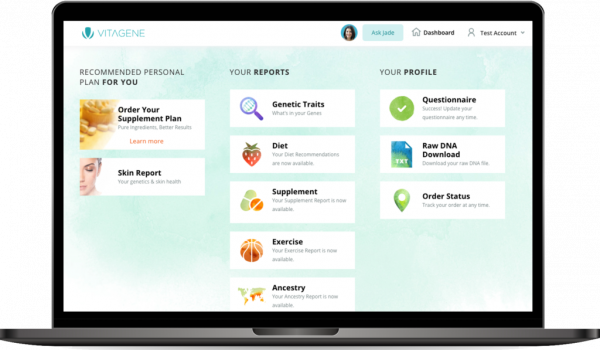
Advantages of VitaGene
Disadvantages of VitaGene
DNA diet tests are very accurate at revealing the specific genes that you carry. The science behind the cheek swab tests is trusted by experts worldwide. There’s no question that they’re both reliable and accurate.
However, if your question is really ‘will my DNA diet test make me lose weight/feel healthier’, the answer isn’t so simple.
That’s because your health and wellness depends on so much more than just your genes. While your genes are a crucial and undeniable part, there’s a massive environmental component too.
For instance, we know that the 100 trillion bacteria that make up your microbiome have a huge impact on your ability to tolerate gluten.
So, your genes might say you should be able to digest bread without a problem, but if your gut bugs say different, you could feel better staying away from sandwiches.
No, DNA diets aren’t the same as other diets.
For a start, most DNA diets aren’t about losing weight: they’re about maximizing your health and longevity.
Sure, some genes affect how easy or hard it is for you to lose weight, but that’s usually not the focus of a DNA diet.
Most weight loss diets focus on depriving yourself and being hungry. DNA diets focus on making the most out of your own individual body and metabolism to make losing weight a healthier and more pleasant experience, if that’s what you want to do.
DNA diets do work: we have the science to prove it.
Saying DNA diets don’t work is like saying that we can’t predict the weather because sometimes meteorologists get it wrong.
We can’t base our conclusion about a whole area of science on one-off examples and small-scale studies.
DNA diets have the power to revolutionize your life, if you use them as one part of a toolkit that takes into account the rest of the factors that make and maintain health.
Your DNA isn’t your fate, but it can put you on a path to wellness and give you a map to help you get to the summit.
*Understanding your genetics can offer valuable insights into your well-being, but it is not deterministic. Your traits can be influenced by the complex interplay involving nature, lifestyle, family history, and others.
Our reports have not been evaluated by the Food and Drug Administration. The contents on our website and our reports are for informational purposes only, and are not intended to diagnose any medical condition, replace the advice of a healthcare professional, or provide any medical advice, diagnosis, or treatment. Consult with a healthcare professional before making any major lifestyle changes or if you have any other concerns about your results. The testimonials featured may have used more than one LifeDNA or LifeDNA vendors’ product or reports.


